BUILDING TOMORROW –
Advancing Towards a Better Society Through Science and Research
Advancing Towards a Better Society Through Science and Research
We invite you to the Scientia Moralitas Conference organized by the Research Association for Interdisciplinary Studies, to be held online on February 20-21, 2025. Join us in this research initiative, “Building Tomorrow: Advancing Towards a Better Society Through Science and Research,” and contribute your expertise and perspectives as we strive together towards a stronger, more secure society.
This conference provides a platform for interdisciplinary research and encourages meaningful conversations addressing the pressing issues that shape our society. We believe in the power of diverse perspectives and aim to stimulate dialogue among professors, researchers, students, and business executives from various cultures, religions, and nations. As a researcher, you will have the opportunity to present your research and make a valuable contribution to your field of expertise. Your unique perspectives are invaluable and can add to the depth of discussions and knowledge. We look forward to your active participation in the conference. Mark your calendars, February 20-21, 2025, and do not miss this opportunity to connect, collaborate, and contribute to the advancement of knowledge.
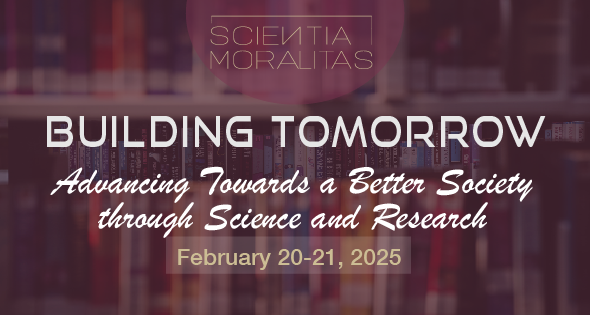
TYPES OF CONTRIBUTION
VIRTUAL PRESENTATION
The virtual presenters can prepare the content for the presentation in one of these following ways:
• Giving a virtual presentation live, via Zoom
• Recording a video of the presentation (mp4 or any other multimedia file)
• Creating a PowerPoint presentation with slides and a voice-over
PAPER ONLY
If you have an additional paper, you can choose the “Paper only” option when you submit it or register. Please see the PUBLICATION OPTIONS below.
Please also see AUTHOR GUIDELINES here.
Papers are welcomed in the following research fields:
Social Sciences: sociology, psychology, economics, political science, anthropology, and geography, human behavior, societies, and social structures
Humanities: literature, history, philosophy, linguistics, religion, and the arts, language, history, and expression
Engineering and Technology: computer science, information technology, civil engineering, and aerospace engineering
Health Sciences: public health, epidemiology, and biomedical sciences, focusing on the study of health, diseases, and healthcare systems
Environmental Sciences: environmental science, ecology, conservation biology, environmental engineering, and sustainability
Natural Sciences: physics, chemistry, biology, astronomy, and earth sciences
Business and Management: business ethics, business administration, management, finance, marketing, entrepreneurship, and organizational behavior
In an ever-changing world, it is imperative to look towards the future while understanding the influence of our past. The “Building Tomorrow” conference aims to explore the intersection of history, innovation, ethics, and technology in shaping a better society. By fostering interdisciplinary discussions and collaborations, we seek to prepare the way for a brighter future built upon the lessons of yesterday and the advancements of today.
Here are some examples of research themes, but they are not limited to:
The Influence of Yesterday:
Exploring History: Understanding the lessons of the past to inform future decisions
Providing Insights: The role of History in shaping our understanding of society and culture
Towards a Better Society: Innovations and Collaborations
Harnessing Innovation: Showcasing cutting-edge technologies and strategies for societal advancement
AI and humanity: A complex relationship between AI and human society emphasizes the need to understand its impact on societal dynamics and ethics. This perspective aims to unravel the challenges and opportunities of integrating AI into our lives while ensuring the preservation of human values and rights in a technologically driven world.
Collaboration for Impact: Promoting partnerships across sectors to address global challenges
Study effective cross-sector collaboration in addressing global challenges by analyzing successful partnership models and identifying key success factors. It will provide insights for policymakers and practitioners on leveraging partnerships as a potent tool for collective action in tackling pressing global issues like climate change, poverty, and public health crises.
Ethics in Science: Navigating the Intersection of Knowledge and Morality
Ethical Dilemmas: Examining the ethical implications of scientific advancements
Moral Imperatives: Balancing progress with ethical considerations for a sustainable future
Law and Policies for a Safer Society:
Legal Frameworks: Evaluating the role of law and policy in fostering societal well-being
Regulatory Approaches: Addressing challenges and opportunities in governance for societal advancement
Empowering Minds:
Discussing the role of education in shaping informed and engaged citizens
Lifelong Learning: Strategies for fostering continuous education to adapt to societal needs
Educational Excellence for Social Progress
Building Bridges: Leadership, Diplomacy, Peace and Better Societies
Diplomatic Endeavors: Promoting dialogue and collaboration for international peace and prosperity
Leadership for Change: Inspiring visionary leadership to drive positive societal transformation
The Impact of Technological Advancements on Society’s Well-being
Tech for Good: Exploring how technology can be harnessed for the betterment of society
Addressing Challenges: Mitigating the negative impacts of technology on societal well-being
Intersecting Realities: Exploring Economic Disparities, Health Disparities, and Social Inequalities
Equity in Healthcare: Addressing disparities in access and outcomes for marginalized communities
Public Health Strategies: Implementing interventions to promote health equity and social justice
Socioeconomic Perspective: Examining economic disparities through a socioeconomic lens involves analyzing the distribution of wealth, income, and resources among different social groups. This perspective considers factors such as education, occupation, and access to financial opportunities that contribute to disparities in economic well-being.
Preserving Our Planet: Environmental Strategies for a Better Society
Sustainable Development: Advocating for environmentally friendly practices for a resilient future
Conservation Efforts: Protecting biodiversity and natural resources for future generations
Research on Happiness:
The Science of Happiness: Exploring the factors that contribute to individual and societal well-being
Promoting Joy: Strategies for fostering happiness and fulfillment in communities
Furthermore, we encourage the exploration of any additional research subjects that hold the potential to shape a more equitable and thriving society in the future.
IMPORTANT DATES
Abstract deadline: January 10, 30, 2025
Full paper deadline: January 20, 31, 2025
Early Bird Registration deadline: November 29, 2024
Registration deadline: February 5, 2025
Conference Days: February 20-21, 2025
PUBLICATION OPTIONS
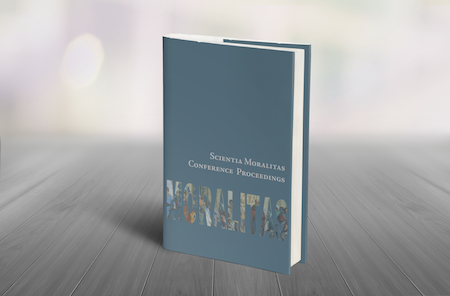
Scientia Moralitas Conference Proceedings
ISBN 978-1-945298-56-1
Indexed by RePEc, Econpapers, Google Scholar, CEEOL
One issue per year
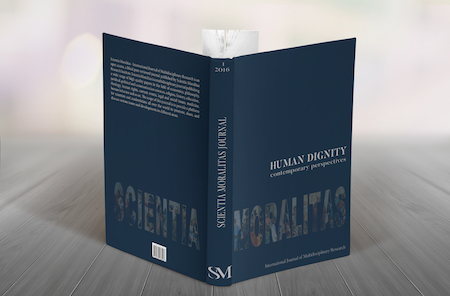
Scientia Moralitas Journal
ISSN(p) 2472-5331 / ISSN (e) 2472-5358
Indexed by RePEc, ERIHPLUS, CEEOL, Google Scholar, ResearchBib, WorldCat
Two issues per year
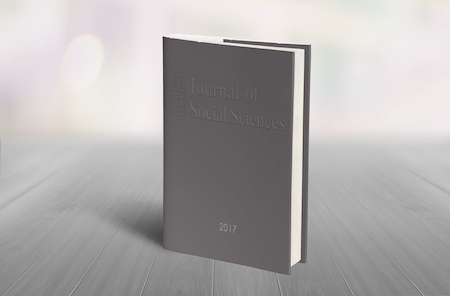
RAIS Journal of Social Sciences
ISSN (p) 2574-0245 / ISSN (e) 2574-1179
Indexed by RePEc, CEEOL, GoogleScholar, DRJI, Journal Factor, WorldCat
Two issues per year
Future CONFERENCES
PHOTO GALLERY RAIS Past Conferences
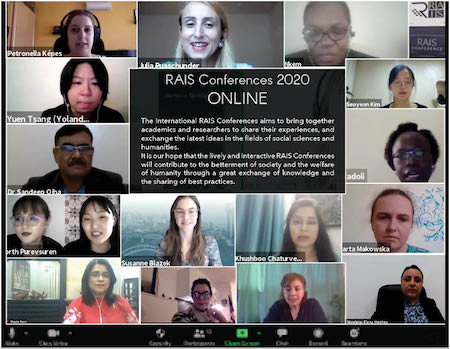
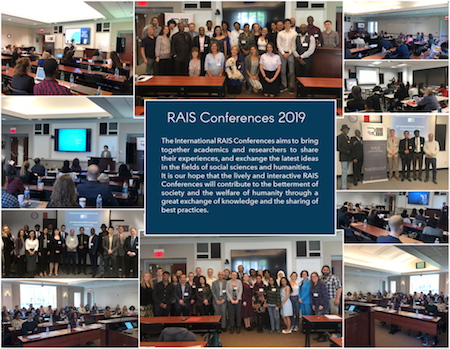
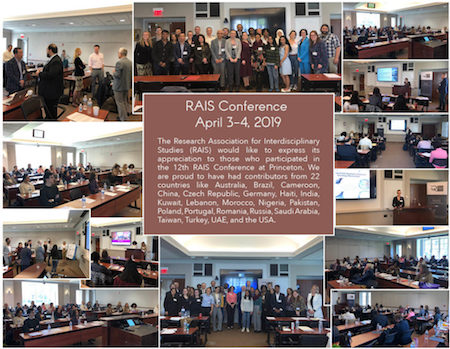
POLICIES
CANCELLATION POLICY: For cancellations, please contact the Conference Administration at scientia.moralitas@email.com.
Canceled Registration Fees will be refunded minus a $75 administrative fee.
No refunds will be given for cancellations 30 days prior to the start of the conference.
The same applies for no-shows for any reason.
LIABILITY: By paying the registration fee, the participant acknowledges that she/he has no right to lodge claims against the conference organizers should the meeting be altered, hindered, or prevented by unexpected political or economic events, unpredictable forces of nature, pandemics, or other unforeseeable events.











